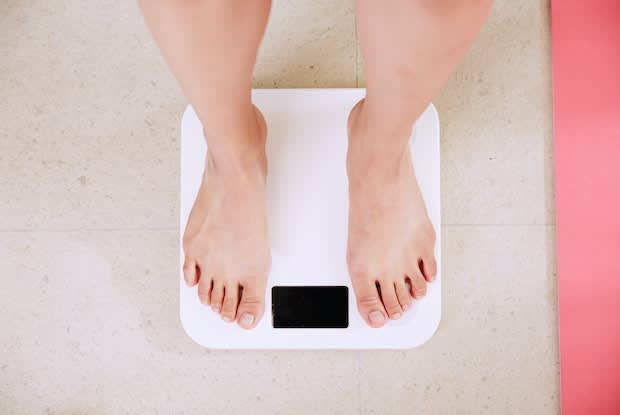Table of Contents
I. Symptoms and Treatments for PCOS
II. Controlling Symptoms with Weight Loss
Symptoms and Treatments for PCOS
Polycystic ovary syndrome (PCOS) is a hormonal disorder that affects many women of reproductive age. The exact cause for PCOS is currently unknown. The likely causes for PCOS include the overproduction of the male hormone androgen, excess insulin, and genetics. PCOS does not affect everyone in the same way. If you have PCOS, you may experience one or more of the following symptoms:
- Excess hair growth
- Balding
- Acne
- Irregular periods
- Ovarian cysts
- Weight gain
- Infertility
PCOS symptoms are manageable with the right treatment plan. Women who have fertility problems with PCOS may be prescribed Femara to promote ovulation. Femara (letrozole) can induce ovulation by suppressing estrogen production in the body. Clomid (clomiphene) is another medication that can help with female fertility. Doctors may also use Aldactone oral tablets to treat symptoms related to hormonal imbalances. Aldactone (spironolactone) is mainly used to prevent strokes, heart attacks, and kidney problems, but it can also be used to treat female hair loss. [1]
People with PCOS are at an increased risk of developing diabetes and heart disease. These complications are linked to being overweight. PCOS can make it easy to carry extra weight, so it is important to maintain a healthy weight to prevent your symptoms from worsening. Research shows that losing five percent of your body weight can relieve PCOS symptoms. [2] Along with physical activity, a balanced and nutritional diet can help with weight loss or maintenance. A PCOS-friendly diet is crucial for managing symptoms and combating the risk of high blood sugar. PCOS is associated with increased insulin levels. Insulin is a hormone that regulates blood sugar. An overproduction of insulin is problematic because your body can gradually stop responding to it (insulin resistance). Insulin resistance makes it more difficult to maintain a healthy weight and is a warning sign for diabetes. To reduce the risk of insulin resistance, try avoiding simple carbohydrates and sugars, such as: Simple carbohydrates are often processed and don’t contain vital nutrients or a sufficient amount of fiber. If possible, choose complex carbohydrates instead, like whole grains, whole-wheat pasta or bread, and brown rice. Avoid artificial sweeteners and preservatives as much as possible. Eating unprocessed fruits, vegetables, and legumes can help your endocrine system better regulate your blood sugar levels. [1] Foods with anti-inflammatory properties are great for preventing PCOS complications. Studies show that PCOS may be caused by low-level chronic inflammation, so anti-inflammatory foods can help with symptom relief. [3] Foods that fight inflammation include: Another important aspect of a good PCOS diet is iron and magnesium. Increasing your iron intake can help with preventing heavy period bleeding. Foods that are rich in iron and magnesium include spinach, eggs, broccoli, almonds, and bananas. However, too much iron can also be harmful. Talk to your doctor before increasing your iron intake. [4] Consuming caffeine may cause changes in estrogen levels. Compared to women who don’t regularly drink coffee, one study showed that Asian women who had roughly two cups of coffee a day experienced elevated estrogen levels. However, white women who consumed two cups of coffee a day experienced lower estrogen levels when compared to the same group. [5] Because of these results, you may want to discuss your caffeine intake with your doctor to determine if it is affecting your hormone levels. To avoid changes in hormone behavior, you may want to try alternatives like herbal tea. Green tea is a proven way of improving insulin resistance. [6] In traditional Chinese medicine, an herb called berberine is used to treat symptoms of insulin resistance in PCOS patients. Berberine is beneficial because it can increase your metabolism and improve your endocrine system’s response. [7] Some herbal remedies that may be worth looking into include: There is evidence that herbal remedies can balance androgen production, re-regulate periods, and help with fertility. [8] Before trying an herbal treatment, talk to your doctor about whether an herbal supplement is right for you. Your doctor can help evaluate if an herbal treatment will interact with your medications. Natural remedies can help with preventing PCOS complications, but they should be used in tandem with a customized treatment plan for full effectiveness. Alternative and herbal treatments can be effective, but they aren’t a substitute for medications like Clomid (clomiphene), Femara (letrozole), or Aldactone (spironolactone). If you are concerned with your PCOS symptoms, get in touch with your doctor today to discuss your treatment plan. The content in this article is intended for informational purposes only. This website does not provide medical advice. In all circumstances, you should always seek the advice of your physician and/or other qualified health professionals(s) for drug, medical condition, or treatment advice. The content provided on this website is not a substitute for professional medical advice, diagnosis, or treatment.
Controlling Symptoms with Weight Loss
Diet for PCOS

Foods to Avoid

Herbal Remedies
